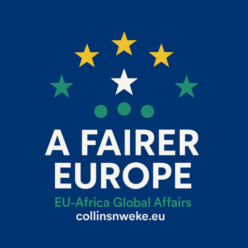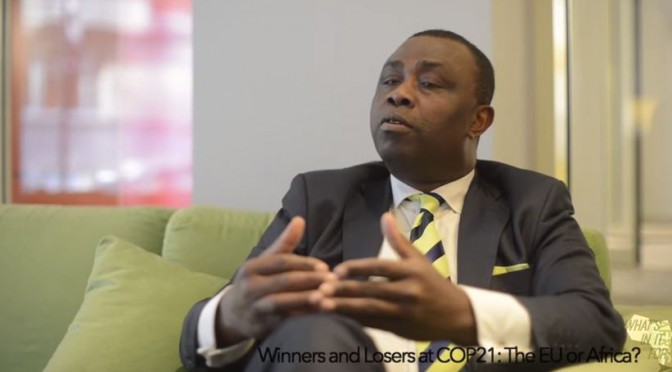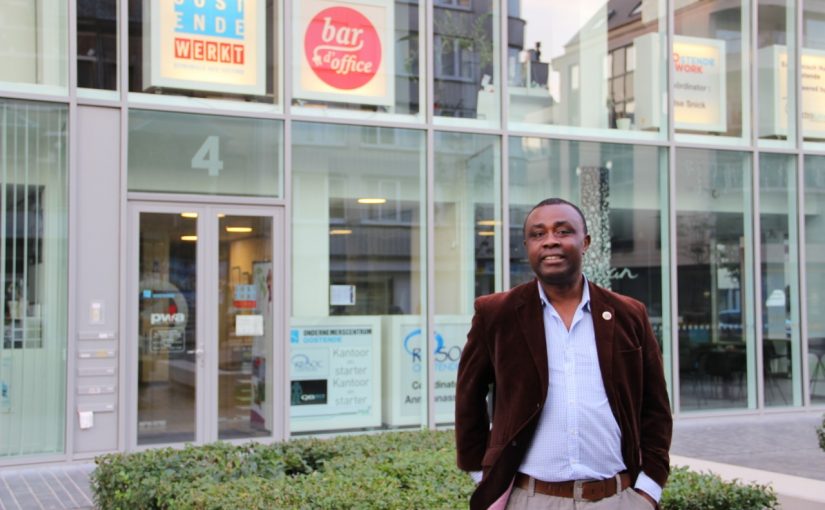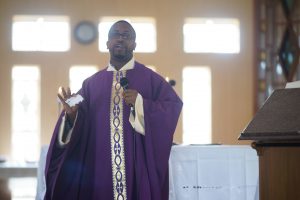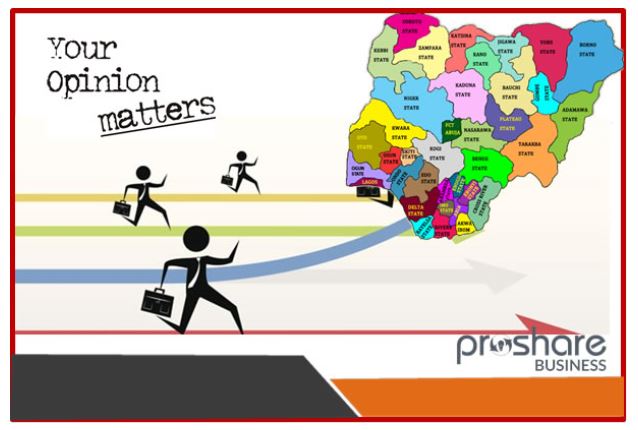Today the United Nations wraps up a two-day regional conference in #Nairobi, #Kenya ?? on global actions to prevent and combat terrorism. Here in a news bulletin on #TRTWorld, I shared a brief view on its global implication and what it portends for Africa. https://youtu.be/GgliHkKFM1I
Economic Diplomacy & the Diaspora
I was delighted to have made a presentation at a Multi-sectoral Stakeholders Economic Investment Summit organised bySME Secretariat and hosted at the Lagos Chamber of Commerce, Victoria Island, Lagos Nigeria on Monday 21 January 2019
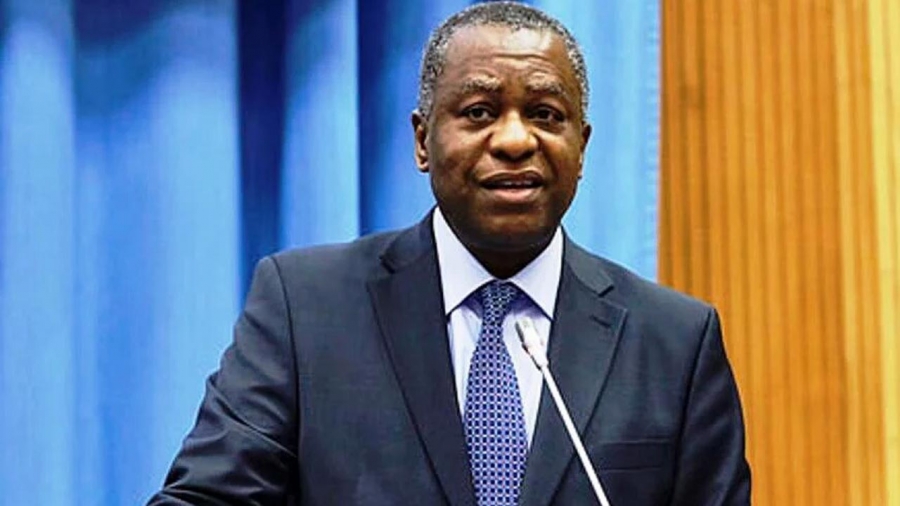
I used the opportunity to review the Nigerian Economic Diplomacy Initiative (NEDI) of the Ministry of Foreign Affairs of Nigeria under President Muhammadu Buhari. After a general refresher of what NEDI is all about, I dropped the following conclusions on this policy initiative:
- NEDI is a strategically important policy tool with huge potentials to make a structural difference in economic regeneration of Nigeria with focus on non-oil sector
- NEDI made a good start but has clearly not lived up to its biddings. It has failed rather woefully in showing evidence that it has made a convincing start in delivering on the important task of enhancing inter-agency collaborations
- There is no visible effort on the part of NEDI to genuinely engage the Diaspora in a result-oriented way
- Unless there is a change of course, NEDI is marked to fail!
I wrapped up with these sets of recommendations:
- Foreign trade component should be introduced into the operations of all Ministries, Departments & Agencies (MDAs)
- A NEDI Attaché should have a sitting in all major Missions of Nigeria worldwide where possible or the role unambiguously integrated into the duties of all diplomats charged with economic affairs
- A formal working relationship should be initiated with Nigerians in Diaspora Organisation (NIDO) worldwide to enhance professional Diaspora mobilization
- Clear targets should be set for inward investment flows as aconsequence of NEDI activities
Access to the integral PowerPoint Presentation on Economic Diplomacy & the Diaspora is possible:https://1drv.ms/p/s!AuyRKnHzz067wRMWQFFnd28yiaXL
The Fights Facing the African Youths
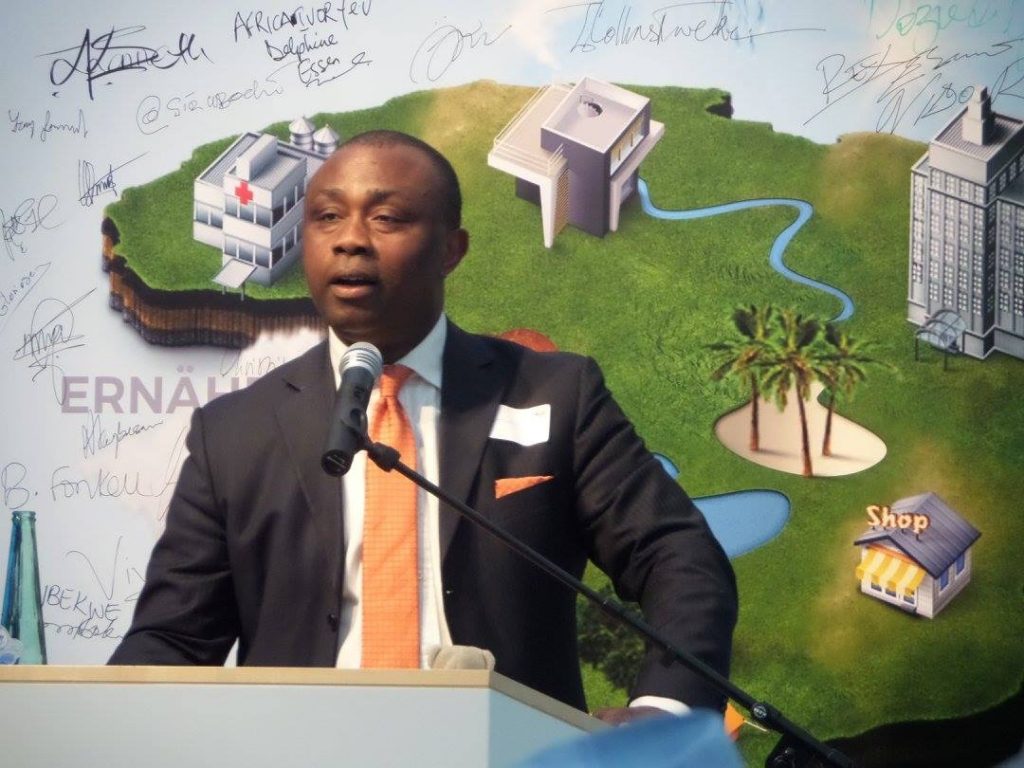
When Kwame Nkrumah of Ghana convened the First Congress of Independent African States in Accra in 1958, his goal was to showcase progress of liberation movements on the continent. Nkrumah loved symbolism as well. He used the congress to symbolise the determination of the people of Africa to free themselves from foreign domination and exploitation. Though the Pan-African Congress had been working towards similar goals since its foundation in 1900, Nkrumah had a unique brand of flamboyance about him that propelled the initiative beyond the initial intentions.
Five years after the Nkrumah Accra Congress, specifically on 25 May 1963, representatives of thirty African nations met in Addis Ababa, Ethiopia, hosted by Haile Selassie. At the time Nkrumah was already a fulfilled man because more than two-thirds of the continent had achieved independence, mostly from imperial European states. At the 1963 meeting, the Organisation of African Unity (OAU) was founded, with the initial aim to encourage the decolonisation of Angola, Mozambique, South Africa and Southern Rhodesia. The OAU committed to supporting the work conducted by freedom fighters, instituting for that purpose a policy tool that it named Africa Liberation Day. With the replacement in 2002, of the OAU by the African Union, the celebration was also renamed Africa Day which has continued to be celebrated on 25 May.
How far have we the African descendants of Nkrumah done him proud 60 years down the line? When he convened his congress in 1958 it was largely with pride for all the efforts to liberate the continent from foreign domination and exploitation. Today the liberation that Africa needs is liberation from itself, from the African strongmen and greedy political elites, grandfathers and great grandfathers who like stubborn colossus, have dominated the scene. Young people at the primes of their lives, like Nkrumah, Azikiwe, Selassie, Lumumba and others were at the time, do not find their place in the Africa of today. By this situation, African youths have a huge fight in their hands to reclaim their space in the scheme of things. This has to change.
This was why when I received invitation to deliver a paper at the Africa Day 2019 events in Dortmund, Germany, I thought I would have to disappoint the Permanent Representative of the African Union to the European Union who is meant to host us at a reception in Brussels to commemorate the Africa Day 2019. I could join the Merry-making in Brussels in the 2020 edition but the chosen topic for Dortmund 2019 is one that I consider germane in the scheme of things in Africa’s developmental trajectory. I am to speak on:Developing Leadership Competencies, Overcoming Obstacles and Influencing Governance for Africa’s Growth with special focus on the Millennial Generation.
It is not uncommon in existing literatures on development studies for Africa to be described as a continent of missed opportunities and failed leadership. There are equally no shortages of empirical evidence to back such assertions. One thing that appears to be in acute short supply is a set of innovative strategies that should help Africa out of the menace. Often people would give up on the current generation of African leaders and repose hope in the Millennial generation as the messiah that will rescue the continent.
Obviously, the change that Africa needs will not propel itself. What leadership competences are therefore required to activate the development and growth that Africa needs? Does the current definition of Youth Leadership sufficiently capture the requirements that will enable the African continent to have a place on the global leadership table? The underlying assumption of my Dortmund paper is that the theory of youth leadership being just about young people gaining skills and knowledge necessary to lead reform and community organizing activities is obsolete. A redefinition is long overdue. It has not happened because the youths themselves have not been in the forefront in that redefinition process.
The paper will present three governance engagement models targeting three domains: politics, social enterprise and civic mobilization and the development of requisite competencies to drive each of them. It will be the contention of the paper that African Millennial generation must be in a hurry to retire the current crop of tired leaders through purposeful civic engagement and reclaim their destiny through renewed governance models, defined and pushed through by them.
Confidence in Diplomacy?
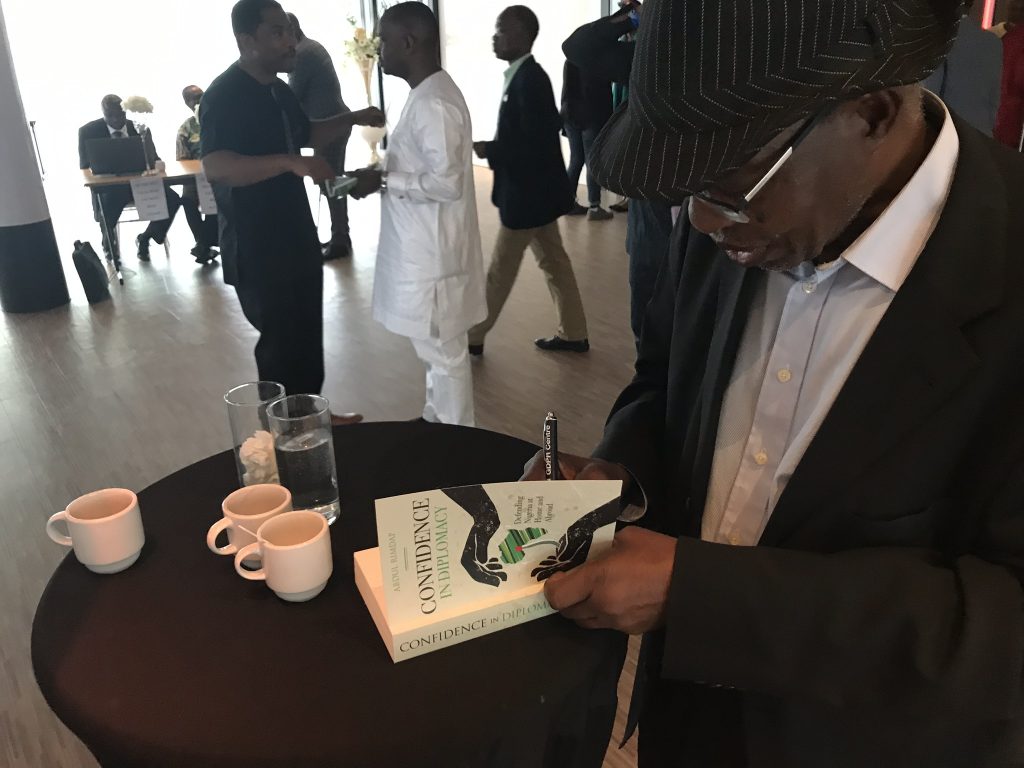
There were just too many odds against making it to Amsterdam, The Netherlands, in the weekend of 27 April 2019. I had committed to moderating a panel discussion on Diaspora Voting and related matters at the plenary of a Nigerian European Global Diaspora Summit there. I had missed Day 1. Missing Day 2 I knew would be unforgivable whatever the excuse. This is because I am expected to deliver the lead paper of the day and lead debate on Nigerian Diaspora Commission and Need for a sustainable United Diaspora Network as the Summit organisers coined it. Whatever the circumstance or situation, I knew that I had to drag myself to the that great Dutch City. And whatever happens I must be back to Ostend home-base same day before midnight.
That is exactly where the problem – at least in part – lies. It is always a sorry case when you have to do a dash in and a dash out of a city you love. This is because you have no opportunity to relax in your favourite café, see your museum, hang out with your pals and visit your high streets and Malls. That was to be my sorry case when I made the quick stop in Amsterdam to present the lead paper at the Summit. The basis of the paper was an opinion piece I entitled Reflections on a Commission for the Diaspora. After laying out a number of provocative pointers, I launched into a most engaging interaction with the audience. As time was always an issue in such occasions, we had to call it off at some point and rather abruptly but in the understanding that the conversation goes on post-summit!
The icing on the Summit cake, which became for me an adequate compensation for the Amsterdam City that I would not see, was a reunion of sort with a father figure and retired but certainly not tired Diplomat of Nigeria, Ambassador Abdul Rimdap. In his recently published Memoir, CONFIDENCE IN DIPLOMACY, the diplomat extraordinaire took his readers on a journey of not only the contemporary issues that shaped our time in history but also a run on comparative world cultures. The book is a clear defence of Nigeria at home and abroad as the subtitle alluded to but it was done in an uncommon candid and intelligent manner. What I found most striking in the narrative style of this brilliant mind was the humble and humane way in which he brings across what would otherwise be a sad or bad incident or episode. A candid writer with uncommon candour, I found for example Ambassador Rimdap’s reference to President Olusegun Obasanjo quite profound. He was clear not just about the fact that he did not like the man but also about why he didn’t like him. Ironically, he had credit for the same man that he disliked for appointing him on merit to, not one or two but, three key diplomatic posts, even without knowing him or having met him in person but simply on positive evaluation of his antecedents. When he recounted the incident that marked a turnaround in his dislike for OBJ, it was with the same undiluted honesty that he justified his dislike.
The Amsterdam – Ostend train journey that takes some 4 hours, looked like a 40 minute trip, thanks to reading my latest autographed gift of book, Confidence in Diplomacy by Abdul Rimdap!
Musa Rabiu: Profile in Creative Human Resource Leadership
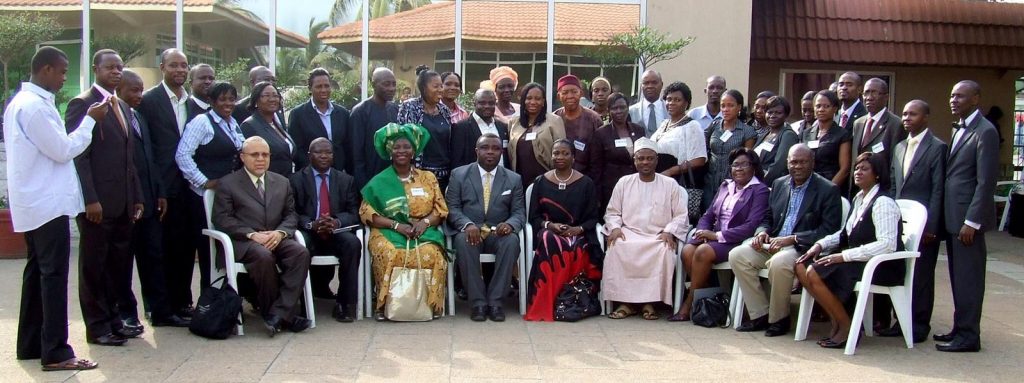
Within three weeks, members of the fifty year old apex regulatory body for human resource management and practice in Nigeria will be electing its 19th President. As I reflected on the candidates for the presidency of Nigeria’s Chartered Institute of Personnel Management, a recent Social Media group conversation I had, came to mind. I countered a post which had a list of Senate Presidents of Nigeria since independence. The post posited that from Nnamdi Azikiwe in 1960 through Chuka Okadigbo in 1999 to Bukola Saraki in 2015 till date, only Saraki was a Muslim. My immediate reflex was what has religion got to do with the Senate Presidency? The gentleman that initiated the post promptly told me to work out the arithmetic and won’t discuss the matter further despite my direct and indirect prompting. As you may suspect the chap in the chat is himself a Muslim.
Because the thought won’t go away from my head and the troublemaker had left me on my own to work ‘the arithmetic’ out, I took the conversation home to the dinner table. My sons were quick to unusually side with me on the matter after I had laid out my case. Or so I thought until this: one of the sons dutifully reminded me that unfortunately Federal Character is still in force in ‘your country’. Once ‘your country’ drops in a conversation, I know I am up for a major ridicule because the issue in discussion makes no sense to them. The other son, in a much lowered and measured tone asked if the norm of having a joint ticket of Muslim and Christian Presidential and Vice Presidential candidates had been abandoned? What about the unwritten gentleman’s agreement within political parties of rotating the presidency between the North and the South? ‘Still in force, Daddy?’ He asked with his head bent over forward towards me. Just when I thought the rebuke and gang-up could not get any worse, the other son quipped in clearly mildly irritated: when your generation and those before you make laws or create norms that turn out to stir trouble, I don’t understand why you simply can’t get rid of it. My generation will have none of those retarded laws, policies or norms. There is something called merit-based appointment, blind of ethnicity or religion, he concluded.
In between the mounting case against Federal Character and its likes, I barely managed to explain to them that the idea of fair representation and creating a sense of belonging for all who share a common space as a country isn’t such a bad idea. I favour it to the extent that it is meant to correct existing deficits, for equity and justice and must be limited in time. Clearly I was on my own on this one. Even at that, these amalgam of views dominated my mind as I thought about the race to be President of the CIPM. There are two candidates. One is a Christian-Yoruba from Oyo State and the other is a Muslim from Kogi State. Of the 18 Presidents till date, all but five are of the Yoruba extraction leaving a significant number of influential people writing the Institute off as ‘that Yoruba Institute’ . No past President was a Muslim, none from neither the Middle Belt nor the Northern Hausa-Fulani extraction. The thoughts, sometimes conflicting with my core beliefs as it were, raged on. In the end, I was left with what I could consider my balanced position, which is that a chance to allow a new face for the CIPM beyond the dominant Yoruba ethnicity so far, should be a welcome one as long as quality is not compromised. This will send a clear signal out there that we are all in it together and begin the prospect of dispelling the notion that this strategically important national body is for only one of the diverse ethnic and religious groups that Nigeria is blessed with.
My so-called balanced position notwithstanding, when I go to bed on the eve of the announcement of the result of the contest, I will sleep soundly. Here is the reason: both candidates in the run for the President are supremely qualified and competent professionals. I know one personally since 2009. He was then the Registrar / CEO of the institute when I resolved to set up Nigeria Human Capital, an outfit that activates an interface between world-class human capital including Nigerians in Diaspora and Nigerian corporates for mutual benefits. He became my natural partner in that journey and my experiences working with him was positive. I do not know his opponent and have not had the privilege of meeting him but some of my well respected and trusted Associates know him and adjudge him to be a potential good President. And I have no reason not to believe that that is the case.
However my support to become the 19th President of the Chartered Institute of Personnel Management (CIPM) of Nigeria goes to Dr Musa Rabiu who, when elected will coincidentally be the first from the Middle Belt geo political zone and the first Muslim to occupy the position. Those are neither the only nor the main reasons that Musa is the best President the Institute has never had. He is people manager extraordinaire, an astute negotiator and has an uncommon balance of fair-mindedness and a sense of realism. He knows when empathy applies and when to be the hard negotiator. In my dealings with Musa, I found him to be strategic and self-driven in his human resource management dealings. This derives from his over 30 years rich cross-functional and cultural experience impacting organisational success. Passionate to provide leadership in human capital development nationally and globally, Musa in his role as Registrar / Chief Executive Officer facilitated unreservedly the founding of Nigeria Human Capital. He did this as far back as 2009 when the role of the Diaspora in repositioning Nigeria was an unpopular idea. Musa’s foresight of supporting projects and processes that will link the institute with its teeming Diaspora population is one that will deliver unrivalled dividends for Nigeria should he be elected President in April 2019.
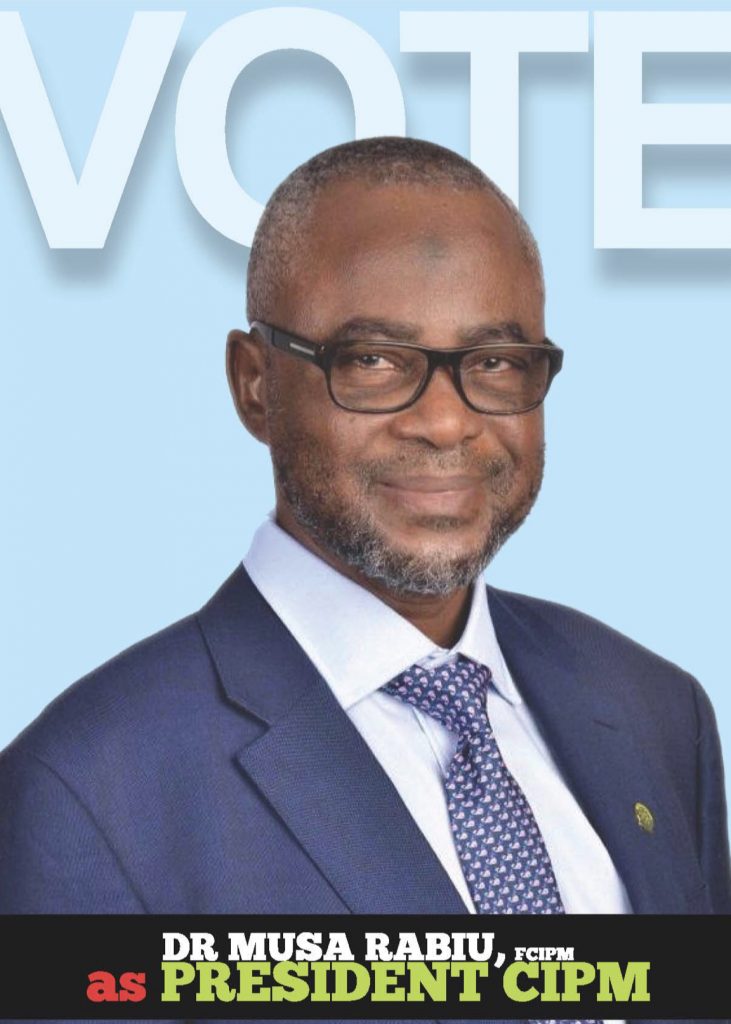
A current Group Chief Human Resources Officer with Dangote Group Nigeria, Dr Musa Rabiu aims to use his time in office as President to strengthen current CIPM governance structure, empower and hold Management & Branch Leadership accountable and promote an all-inclusive process of membership of Committees and other leadership positions. It is my expectation that the CIPM Membership Brand promotion that Musa envisages, will include what I call ‘Diaspora Marketing’. The capacity is available and there is certainly the appetite amongst the Diaspora to engage Nigeria’s apex human resource body in its vision of becoming the foremost people management and organizational development institute in Africa, respected across the world. My time with the Institute while partnering to establish Nigeria Human Capital and association with Musa in different capacities since then has left me with the firm belief that there is no person better suited than him to accomplish the CIPM mission of promoting excellence and regulating the ecosystem for people management to deliver value for sustainable individual and organisational growth and by default the growth of Nigeria.
This endorsement was authored by Collins NWEKE, founder of Nigeria Human Capital in partnership with the CIPM, a past Chairman of Nigerians in Diaspora Europe and former Human Resource staff of the United Bank for Africa. He migrated to Belgium in the 90s and currently serves a 3rd term as Green Party Councillor for Social Affairs at Ostend City Council Belgium
Economic House Ostend: evaluated, restructured and now into the future
I recently attended my last meeting as a board member of the Economic House Ostend. During the 2013 – 2019 legislature, it was an honor to serve on behalf of the Greens on the board of directors of this important economic engine of our dear City-on-Sea. After an initial internal analysis as a board member, we quickly came to the conclusion that the priority of the organization should be two-fold: screening then restructuring. Since our proposal was not immediately warmly welcomed by the ruling parties, we used every opportunity to push our point. After a long period of opposition, an audit was allowed and followed by the restructuring in 2015 into an External Independent Agency (EVA).
Admittedly, there is no perfect system, but the restructuring and the new legal form EVA has given us the opportunity to realize and / or adjust the following:
• A responsible and autonomous administration,
• More cooperation with the economic sector and more specifically entrepreneurs, employers’ organizations Voka and Unizo, Social Economy Ostend, Horeca Middenkust, Young Economic Chamber, Syntra West, trade unions and the like,
• More transparency in policy-making, decision-making was guaranteed by the various governing bodies (board of directors and general assembly) within the non-profit organization in which both the private and public sector are represented,
• Faster decision-making as an autonomous entity ensured that market trends and opportunities could be responded to in a timely manner,
• Activities in a professional, commercial environment,
• More opportunities for strategic alliance formation with other actors
At Council Sessions we sometimes made tough interventions about the Economic House, but the principle of eyes on the ball and not on the man was always applied. For us the Economic House remained a hopeful story. My appreciation for CEO Gunther Vanpraet and his team. Gunther worked with great enthusiasm for an entrepreneurial city. I wish his successor as CEO, Thomas Dupon and my successor as board member, Belinda Torres Leclercq, every success in the continuing challenge of reducing unemployment in Ostend
Doorgelicht, herstructureert en nu de toekomst in.
Ik woonde recent mijn laatste vergadering bij als bestuurslid van het Economisch Huis Oostende. Het was een eer om gedurende de legislatuur 2013 – 2019 namens Groen te zetelen in de raad van bestuur van deze belangrijke economische motor van de stad-aan-zee. Na een initiële analyse bij mijn toetrede als bestuurslid, zijn we binnen mijn fractie, snel tot de conclusie gekomen dat de prioriteit van de organisatie tweeledig moeten zijn: herstructurering voorafgaand aan een doorlichting. Gezien ons voorstel niet onmiddellijk warm werd onthaald door de meerderheidspartijen, gebruikten we elke gelegenheid om dit aan te halen. Na lang verzet werd een doorlichting toegestaan en gevolgd door de herstructurering in 2015 tot een Extern Verzelfstandigd Agentschap (EVA).
Toegegeven, een perfect systeem bestaat niet, maar de herstructurering en de nieuwe rechtsvorm EVA heeft ons de mogelijkheid gegeven om de volgende zaken te realiseren en/of bij te sturen:
• Een verantwoordelijk en autonoom bestuur,
• Meer samenwerking met de economische sector en meer bepaald ondernemers, werkgeversorganisaties Voka en Unizo, Sociale Economie Oostende, Horeca Middenkust, Jong Economische Kamer, Syntra West, handelaarsbonden en dergelijke meer,
• Meer transparantie in beleidsmatige besluitvorming werd gegarandeerd door de diverse bestuursorganen (raad van bestuur en algemene vergadering) binnen de vzw waarin zowel de private als publieke sector vertegenwoordigd zijn,
• Een snellere besluitvorming als een verzelfstandigde entiteit zorgde ervoor dat er tijdig kan ingespeeld worden op markttendensen en –opportuniteiten,
• Activiteiten in een professioneel, commerciële omgeving,
• Meer mogelijkheden tot strategische alliantievorming met andere actoren
Langs de gemeenteraad, hielden we soms harde tussenkomsten over het Economisch Huis maar het principe van op de bal en niet op de man spelen werd steeds toegepast. Het was voor ons nog steeds een hoopvol verhaal. Mijn waardering voor CEO Gunther Vanpraet en zijn team. Met veel goesting werkte Gunther voor een ondernemende stad. Ik wens zijn opvolger als CEO, Thomas Dupon én mijn opvolger als bestuurslid, Belinda Torres Leclercq, veel succes toe in de blijvende uitdaging om de werkloosheid in Oostende te doen dalen.
Institutional Racism as Urgency of our Time
I have found no evidence that a major anti-racism demonstration taking place in Brussels on 24 March was planned within the framework of Black History Month Belgium?? #BlackHistoryMonthBelgium. It is therefore safe to call this a coincidence! A beautiful coincidence, a welcome one.
The Antwerp based pressure group HandinHand Against Racism is the tireless organiser of the manifestation. Over the years the organisation has used its actions and activities to place itself in the forefront of fighting for equality and zero-tolerance for discrimination in Belgium. We have come to a point where Government needs to be called out for not taking sufficient actions to banish racism and discrimination in this country. I therefore make bold to condemn the Belgian Government as accomplice in the crime of racism and discrimination.
There are six demands on the table at the 24 March demonstration. A careful examination of these demands confirms that our biggest problem in this country is not racism perpetrated by individuals. The urgency of our time is institutional racism. In other words the racist here is Government. Government should therefore take decisive actions in the following areas:
- Concrete steps towards equal access to the labour market, housing market and education
- Humane and high-quality refugee reception policies and practices
- Liberty for individual use of philosophical signs, which are currently outlawed
- Review and reform of Foreigner or Alien Act to achieve absence of meddling by government
- Immediate end to ethnic profiling
- Implementation of decolonization in museums, curricula, textbooks, libraries, streets and squares, media, …
Now is the moment for Government to establish an ambitious and purposefully coordinated inter-federal action plan against racism.
#BHM #BlackHistoryMonth #Belgium
Thoughts on Christmas & Capitalist Materialism
♦Reflections by a Roman Catholic Priest on the capitalist materialism associated with the celebration of Christmas today
There is increasing concern that materialist capitalism is trying to overshadow and delete Jesus Christ from Christmas celebration. If you have such concern, you are sharing the opinion of Pope Francis, and many other Christians, including myself. Jesus Christ is the reason for Christmas and we should make sure we place him back in the middle of Christmas. We, and our families, should ensure that all the mad rush for shopping, gifts, cooking, welcoming/visiting guests, do not overshadow Jesus Christ, the essence and reason for Christmas. Sometimes I wonder, if I were Jesus Christ, how I would feel to know that on the celebration of my birthday, people prefer to spend time on the shopping and food associated with my birthday, and totally, totally forgot about me.
From a purely etymological analysis (analysis of the words Christmas and capitalism’s origin), Christmas predates capitalism. So, capitalism cannot have created Christmas. In English, the word Christmas (Old English Cristemessa which meant Christ’s Mass, Christ’s festival or Christmas Day) was first used around 1100 (See The Harnhart Concise Dictionary of Etymology; The Compact Edition of the Oxford English Dictionary). And the word Capitalism was first used in 1854 (See The Harnhart Concise Dictionary of Etymology; The Compact Edition of the Oxford English Dictionary). So Christmas, as a word and concept in English, had been used for over 700 years before the word (and concept???) of capitalism emerged. Thus, capitalism cannot have created Christmas; Christmas by far predates capitalism as a concept.
There are christian denominations that do not celebrate Christmas. Their reason is that December 25 was not the date Jesus was actually born. Some others argue that it is actually a pagan feast. For lack of time, I will deal with the first.
Yes, we don’t know the exact date Jesus Christ was born; we can guess based on historical data. But, we know that Jesus Christ was born; today, Christians as well as the best secular historical scholars attest to the historical existence of Jesus Christ. As Christians, that is a part of the fact that Christmas Day celebrates. That Jesus Christ, Son of God, Savior of the World, was born!
We too have parents, uncles and aunts who don’t know the day they were born, but we join them in celebrating whatever date they chose as their day of birth. Since we are all aware they were born someday, we have no problem celebrating the day they chose. So, they chose a date, and we respect and celebrate that date as their birth days. They have that date in their documents (passports, civil service documents, etc); the government and even the international community respects that date. I see no problem at all with chosing a date for Jesus Christ. Remember, the choice of December 25th predates the protestant reformation.
By the way, we Africans were the first to celebrate the birth of Christ! In 200 AD (that is about 1800 years ago) in Egypt, among the Egyptian Christians, the celebration of Jesus Christ’s birth began. This was far before the existence of Europe as we know it, and even the “discovery” of America by Columbus (Europeans and Americans are the originators and contemporary champion of capitalism in the world)! Even before their existence, Africans were celebrating the birth of Jesus Christ. Thus, you can blame the celebration of Christmas on Africans!
Thus, rather than stopping the celebration of Christmas, I will encourage us to see that Jesus Christ is at the heart of our Christmas celebration. I just in google “christian ideas to celebrate Christmas”, and I found this and this and this; and there are more! There are so so so many symbols and meanings associated with the Christmas celebration. Let us make effort to research and share those meanings with our children and family. What is the best Christian way to celebrate Christmas? Let us strengthen this celebration by putting Jesus Christ at the center of our Christmas. What does the Christmas tree symbolize? What do the lights and candles mean? What does the Christmas wreath symbolize? Why do we exchange gifts at Christmas (e.g. can’t we understand it in the fact that God first gave us Himself as a gift wrapped in an unexpected package of a vulnerable. defenseless baby. If that be the case, must we buy gifts to share Christ with others? Must we buy gifts to imitate what God did for us in the birth of Christ? God shared what God valued most as a gift. Most times, the best gift we can give others is the best of us, not things, as the Christmas commercials make us believe. Can we go back to that)? Why do we welcome guests or remember the poor (remember that Jesus Christ was born very poor, homeless…requiring gifts from total strangers in his first days on earth. Can we replicate these)? Thanks to technology, we can research these things, or challenge our children to research them from authentic websites and share? When people are confused and need clarification, then reach out to someone more knowledgeable who could help (in my own way, I will be glad to help; in spite of my awareness that I am also learning and have a lot of things I don’t know).
Xmas has been used for Christmas. I was one of those who opposed the use of Xmas (just last year) until someone else helped me understand that Xmas is not actually opposed to Christmas. They are the Same. Christmas is made of two words Christ + Mass. Christ stands for Jesus Christ. Mass stands for Mass as we know it in the Catholic Church. It is a Mass that basically celebrates the birth of Christ. Christmas.
X, over the years, was used to represent Jesus Christ. Why? When you write Christ in Greek (the original language in which the New Testament Bible was written) X is the first letter in the name of Christ (in Greek, it will actually be Christos but written χριστός). Please take some time to read what we call Christogram. When you do, some of the symbols you see in Christianity and especially the Catholic Church will begin to make sense to you. So, Jesus Christ’s name was abbreviated to symbol the first letter, the symbol X (this is very common in early Christian art…contemporary art/graphics/designs are reviving some of these like the use of the symbol of fish for Jesus which people put in their cars). So Xmas is obviously a combination of Christ + Mass. Voila!
——————————
Ugo Nweke, the author is a Roman Catholic Priest currently pursuing a Doctorate in Leadership at Creighton University in Omaha, Nebraska, USA.
Focus on Governance of States of Nigeria
There are lots to be read into the recent report by the Fiscal Responsibility Commission on the debt profile of various state governments in 2016. According to the Punch of March 20 2018, which reported extensively on the report, the debt profiles of about 18 states exceeded their gross and net revenues by more than 200 per cent.
The paper quoted the FRC as saying that the debt may have increased by 2017 since “there was no effort by the states to clear them”. It also quoted the FRC as saying that the development was contrary to the guidelines of the Debt Management Office on debt sustainability, which recommends that the debt status of each state should not exceed 50 per cent of the statutory revenue in the previous 12 months.
“In the light of the DMO’s guidelines on the Debt Management Framework, specifically, sections 222 to 273 of the Investment and Securities Act, 2007 pertaining to debt sustainability, according to the guidelines, the debt to income ratio of states should not exceed 50 per cent of the statutory revenue for the preceding 12 months,” the FRC was quoted as saying.
Analysis of the FRC report (which was based on the debt profile of the states as of December 31, 2016) showed that most of the states of the federation flouted the regulation as they exceeded their debt to revenue ratio by more than 100 per cent. According to the report, the worst offenders were Lagos (670.42 per cent), Osun (539.25 per cent), Cross River (486.49 per cent), Plateau (342.01 per cent), Oyo (339.56 per cent), Ekiti (339.34 per cent), Ogun (329.47 per cent), Kaduna (297.26 per cent) and Imo (292.82 per cent). Others were Edo (270.8 per cent), Adamawa (261.96 per cent), Delta (259.63 per cent), Bauchi (250.75 per cent), Nasarawa (250.36 per cent), Kogi (221.92 per cent), Enugu (207.49 per cent), Zamfara (204.91 per cent), and Kano (202.61 per cent).
According to the report, the debt to net revenue of the states puts some of the states in even more precarious situation. For instance while the debt to net revenue of Lagos State is a whopping 930.96 per cent that of Cross Rivers State is 940.64 per cent.
The report found that the only states whose debts did not exceed the recommended 50 per cent ratio by more than 100 per cent were Anambra, Borno, Jigawa, Kebbi, Sokoto, Yobe and the Federal Capital Territory.
Several extrapolations could be made from the above set of frightening figures:
One, the amount of revenue accruing to a state has no relationship with its debt profile. For instance Lagos State which has the highest debt to gross revenue ratio of 670.42 per cent (and debt to net revenue of 930.96 per cent), is one of the highest receivers of funds from the Federation Account. It has also one of the best internally generated revenue profiles (thanks in part to the location of prime businesses there).
In September 2017 for instance, it received from the Federation Account N8.8bn, compared to say Borno and Anambra which received less than half of what it got from the Federation Account alone during the period and yet stayed within the recommended 50 per cent to revenue ratio. Remarkably none of the top receivers of funds from the Federation Account – Akwa Ibom, Delta, Rivers, Bayelsa, Kano and Kaduna States – made it in the ‘honours’ list.
In fact the states whose debt did not exceed the recommended 50 per cent ratio by more than 100 per cent according to FRC received the following sums in September 2017 from the Federation Account (I am using a random month and year for which data on what was received by all the states are available): Anambra (N4.3bn), Borno (N4.9bn), Jigawa, (N4.67) Kebbi (N4.26), Sokoto (N4.1bn), Yobe (N4.15bn).
In contrast, the top receivers of funds, which did not make the ‘honours’ list received the following sums during the period: Delta (N14.2), Akwa Ibom (N12.94bn), Rivers (N12.45bn), Kano (N6.8bn) and Kaduna (N5.4bn). In the same vein, Osun, which is the poorest state in the country in terms of sums received from the Federation Account, (it got only N1.6bn during the period) was not listed among the states with the highest debt to gross revenue ratios. One of the conclusions from this would be the wise words of Benjamin Franklin, one of the founding fathers of the USA: “Money never made a man happy yet, nor will it. The more a man has, the more he wants. Instead of filling a vacuum, it makes one.”
Two, a survey published in May 2017 by BudGIT, (a civic organisation founded in 2011to simplify the budget and matters of public spending for citizens), found that most states, including some top receivers of funds from the Federation Account and many heavily indebted states, owed workers arrears in salary and pension payments. Among the States which it found were not owing salaries were Anambra, Borno, Akwa Ibom, Cross River, Kaduna, Kano, Kebbi, Lagos, Plateau, Sokoto and Yobe.
Remarkably while rich Delta State and Bayelsa States owed upwards of six months salaries, Yobe, Kebbi and Anambra which receive less than half of what they get from the Federation Account did not owe any salary arrears. The above raises the question of whether revenues accruing to states are good indicators of the viability of states. It will seem from the above that the capacity for governance and managing resources may be better indicators of state viability than the quantum of money that flows to states.
Three, while oil money controlled by the federal government has made it the central site of the intra elite struggles for power and privileges, a commensurate attention is not paid at what happens at the state levels. In fact while the country’s democracy is in a transition mode at the federal level, it appears to be suffering from arrested development at the state levels. Just consider these: In Imo state, which was found by BudGIT to owe primary school teachers two months arrears of salary and pensioners 24 months arrears in May 2017, the government strangely found enough resources to build statutes of personalities that caught his fancy, including that of Jacob Zuma, former President of South Africa, who is now facing corruption charges in his country. The same Governor gave the ministerial slot for his state to his father-in-law and is now pushing for his son in-law to succeed him.
In Kaduna state, an otherwise smart governor had to pull down a house belonging to his political opponent. In virtually all the States, the Governors behave like monarchs rather than elected executives that are accountable to the electorate. Is there any State in the country where the State House of Assembly is not a rubber stamp of the Governor? Is it possible for a State Governor to lose a court case in the State’s High Court? Can the party of a state Governor lose Local Government elections in the State? Compared to what is happening at the state level, the federal government seems to be doing well.
Four, what the different ethnic and regional factions of the political class demand from the federal government, they often negate when it comes to their own states. For instance, while we all extol the unwritten power rotation agreement between the Northern and Southern parts of the country, will it be a crime for the politicians to respect the same principle in their states? Will it for instance be a crime for a power rotation arrangement in Benue, Kaduna, Taraba and several other states in the country so that all the key constituents of a State will have a good opportunity of producing the Governor of the State? Several states in the country need restructuring, not just the federal government.
The hullabaloo over Senators’ N13.5m monthly ‘running cost’
The recent revelation by Senator Shehu Sani (Kaduna Central) that each Senator receives the whopping sum of N13.5m as running cost – on top of N700,000 monthly consolidated salary and allowances – has led to justified anger in the land. I join in condemnation of bogus payments. But I will like also to put a caveat: several comparisons of what the Senators earn with what their counterparts earn in Europe, USA and elsewhere earn, miss the context. The truth is that the electorate in Nigeria (and virtually all parts of Africa) are manifestly different from their European and American counterparts.
For instance while the constituents of a Nigerian Senator expect him or her to attend funerals, naming ceremonies and launchings of all hues and to be among the highest donors in such events, there are no such expectations on their American and European counterparts. Nigerian Senators, like political office holders, are also expected to become cash cows and to donate handsomely wherever they go and their presence is acknowledged including in churches and mosques.
This is not a justification for any jumbo pay when most Nigerians are just trying to scrape by but to give a sense of proportion to the conversation.
Again, it is important for us to compare like-for-like. So if we are justifiably angry at what Senators take home every month, we must also know how much top members of the executive and the judiciary take home – in consolidated monthly salary and monthly ‘running cost’.
The author is Jideofor ADIBE. Email: pcjadibe@yahoo.com and Twitter: @JideoforAdibe. Originally published by Proshare Nigeria on 23 March 2018
